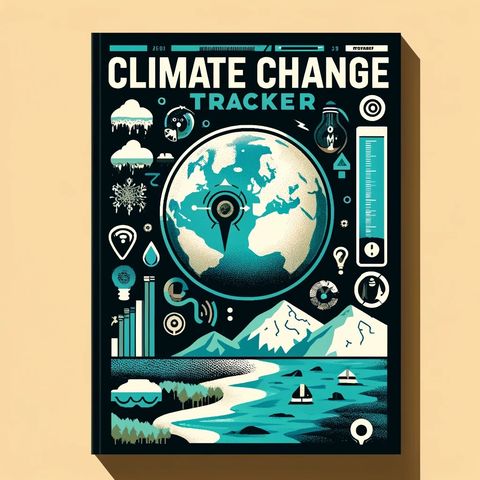"Uncovering the Economic Toll of Climate Change"

Download and listen anywhere
Download your favorite episodes and enjoy them, wherever you are! Sign up or log in now to access offline listening.
"Uncovering the Economic Toll of Climate Change"
This is an automatically generated transcript. Please note that complete accuracy is not guaranteed.
Description
As the planet continues to experience extreme temperature variations, 2024 is shaping up to potentially be the hottest year on record globally. This trend signifies an alarming pattern of climate...
show moreMarina Jurica, a seasoned meteorologist and climatologist with CBS News in Los Angeles, notes that the shifting climate patterns have been particularly evident this year. With increasing temperature records, there is a cascading effect on several sectors of the economy. Agriculture, one of the most susceptible industries, faces pronounced risks due to unpredictability in weather patterns. Crop yields are at the mercy of changing climates, resulting in fluctuations in production rates which subsequently affect commodity prices and supply chains globally.
Furthermore, the intensifying heat impacts labor productivity, especially in sectors requiring outdoor work. Construction, farming, and utility maintenance jobs are directly affected by high temperatures, leading to decreased productivity and increased health risks for workers. This not only strains businesses but also elevates operational costs and complicates project timelines.
Energy consumption patterns are also shifting dramatically. With warmer temperatures, the demand for cooling systems has surged, putting unprecedented pressure on energy supplies, which can lead to higher electricity costs and potential energy shortages. Moreover, the increased energy demand significantly impacts utility companies' capacity to supply consistent and sustainable power, leading them to invest heavily in infrastructural upgrades and renewable energy sources.
Coastal regions are facing their own set of challenges. Rising sea levels and increased frequency of extreme weather events like hurricanes and floods result in costly damages and insurance claims. The real estate market in these areas becomes volatile, with property values fluctuating significantly due to potential risks and damages from these natural events.
These economic repercussions underscore the need for governments and businesses to adapt and plan for a future where climate change is a constant consideration. Innovations in technology and infrastructure, revised regulations, and forward-thinking policies will be pivotal in mitigating the adverse economic impacts of climate change. The situation calls for a concerted effort from all sectors to devise solutions that not only address the environmental challenges but also cushion the economy from the shockwaves caused by these climatic shifts. Thus, understanding and integrating climate resilience into economic planning is not just optional—it is essential for sustainable growth and development in the face of an increasingly unpredictable global climate.
Information
| Author | QP-3 |
| Organization | William Corbin |
| Website | - |
| Tags |
Copyright 2024 - Spreaker Inc. an iHeartMedia Company

Comments